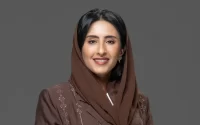Jeddah Islamic Port: Anchoring Saudi Arabia’s Vision 2030 And Global Trade
Jeddah Islamic Port, one of Saudi Arabia’s most vital maritime hubs, stands as a cornerstone of the Kingdom’s ambitious Vision 2030. Its strategic location on the Red Sea positions it perfectly as a critical nexus for both east-west and north-south trade routes, enhancing its value not just to the national economy but also to the global trade ecosystem.
The Vision 2030 initiative has ignited substantial interest from foreign investors, with the maritime industry being no exception. Jeddah Islamic Port, alongside other key Saudi ports, plays a pivotal role in fulfilling this vision by offering unparalleled opportunities for investment, collaboration, and growth.
Aamer Alireza, Executive Chairman of the Board of Directors of Red Sea Gateway Terminal, highlighted the impressive infrastructural developments taking place at the Jeddah Islamic Port, stating, “Red Sea Gateway Terminal, along with its partner Mawani, undertook an ambitious program to redevelop key infrastructure along those corridors. Today, Red Sea Gateway Terminal is in the midst of a $1.7 billion development program at the port in Jeddah.” This strategic investment aligns with Saudi Arabia’s Vision 2030, positioning the port as a vital artery for the nation’s maritime ambitions and the global trade ecosystem.
Adding to this perspective, Mr. Poul Hestbaek, CEO of Folk Maritime, emphasized the collaborative drive behind the Kingdom’s logistics ambitions:
“One of the excitements I got from coming to the Kingdom in my new role was the vision to bring the logistic hub structure into Saudi Arabia. This mix of public and private expertise, both local and international, brings a willingness to drive that vision. And in the center of this, we have Mawani and the Minister of Transport, who must be the glue that brings this knowledge together.”
Hestbaek underlined that collaboration between public entities like Mawani and private companies is essential to realizing the Kingdom’s logistics ambitions. He expressed confidence that this partnership-driven approach will allow Saudi Arabia to meet its goals efficiently while offering rewarding opportunities on both a local and international scale.
Adding to this, Mohammad Shihab, Managing Director of Maersk Saudi, highlighted the company’s significant commitment to the Kingdom:
“We believe in the vision of the Kingdom, and that’s why we’ve made one of our largest investments here. Saudi Arabia’s market size and strategic location along the Red Sea make it a highly attractive destination for long-term logistics infrastructure development.”
Jeddah Islamic Port’s unique location allows it to serve both African markets and eastern trade partners, amplifying its role as a central node in regional and global commerce.
Shihab also highlights the emerging trade relationships with Africa and India, which have the potential to further boost Jeddah Islamic Port’s prominence in the coming years.
Mr. Chris Hayman, Chairman Emeritus of Sea Trade Maritime Informa Markets, spoke enthusiastically about the Kingdom’s potential:
“I think there’s a lot of evidence that international investors are excited by the prospects and opportunities here in Saudi Arabia as part of the Vision 2030 program.
We’re going to see a lot more foreign investment in infrastructure to support what already has been done so far. Saudi Arabia has a fantastic geographical location, well-positioned in the east-west trade routes and north-south. The Saudi ports are extremely well-positioned to take advantage of that.”
Jeddah Islamic Port’s continued development not only strengthens its standing in the global shipping arena but also fosters regional trade growth, particularly with emerging economies in Africa and strategic partners like India. As investments pour in and the Kingdom moves toward its Vision 2030 goals, Jeddah is poised to become an even more vital hub for trade, collaboration, and economic growth.







 Email: info@cyber-gear.com
Email: info@cyber-gear.com